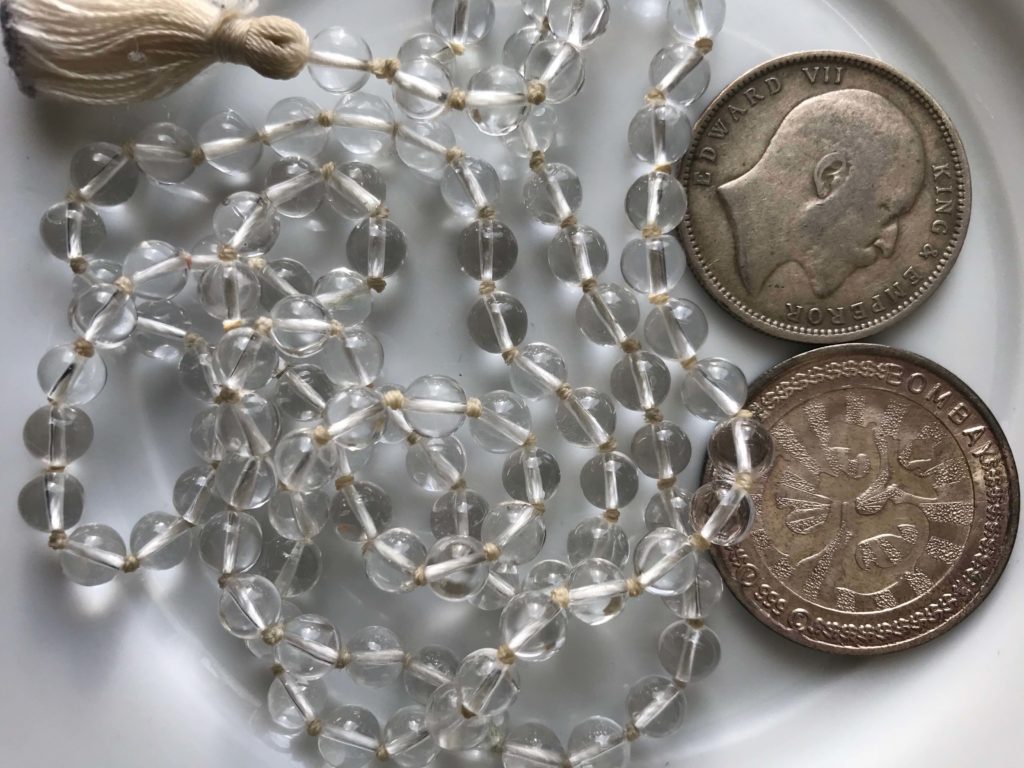
For Canada’s Sharp Magazine, I wrote a little piece about my most prized possession: my mother’s prayer beads.
My father opened my mother’s closet and laid out all its contents on the bed: beautiful silk saris, a couple of woollen coats, sweaters, small pieces of jewellery, a few gold coins. This was just hours after we had cremated her on the banks of the Ganges, near Patna in eastern India.
My sisters were to divide the saris among themselves and close relatives. That is what my father proposed. He mentioned the names of our aunts and a cousin who was sitting in the next room. The idea was a good one, but our grief was too raw, and my sisters protested by bursting into tears.
The previous night, I had arrived from New York — a 15-hour direct flight to Delhi and then another, just over an hour long, to Patna. I watched in silence as my father turned his attention to the smaller items, the objects that, unlike the saris, didn’t carry the smell of the perfume my mother used.
The grandchildren were to share the gold coins. I took two for my kids, whom I had left behind in Poughkeepsie. There were a couple of silver coins on the bed. One of them had the words “Edward VII King & Emperor” embossed around the head of the bald, bearded sovereign. Had an old woman in my father’s village given this coin to my mother when she had arrived as a bride?
I accepted unquestioningly the fine-looking sari that my father chose for my wife. Did I want anything from the items of jewellery? I shook my head to say no, but then I picked up a necklace of prayer beads that I had seen my mother wearing. This crystal necklace didn’t look expensive and was light enough not to add to the burden of my sorrow. Take it, take it, my father said.